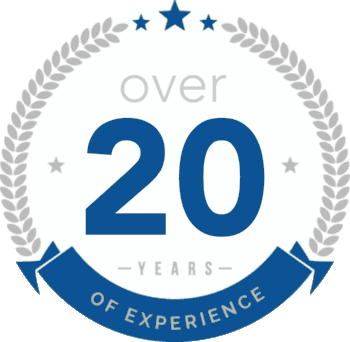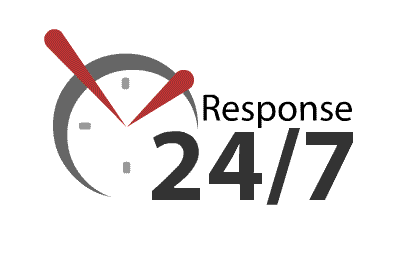Copper CRM is a bit more of a niche software and one of the best CRM for small business. Process of setup and implementation is resource-intensive in time and training. As a CRM solution, Salesforce might seem a bit overwhelming if you are more familiar with contact management apps like HubSpot, which is simpler at first glance. Besides, feel free to explore nine examples of sales CRMs for your small business in one of our blog posts.

Process tickets quickly and deliver more relevant support to your clients with the built-in helpdesk functionality of an operational CRM. Operational CRM brings sales, marketing, and customer support processes together, contributing to enhanced customer relationships. Such a tool centralizes your data and streamlines business operations, leading to improved productivity and better customer interactions. With automated up-selling and cross-selling campaigns, you can show your clients how to get the most out of your products and services. Operational customer relationship management can help you track your clients’ purchases and analyze their pain points.
Agile CRM
An operational CRM system is primarily designed to help businesses streamline sales, marketing, and customer service functions. It can significantly enhance your business efficiency by automating your mundane tasks. A customer profile is a detailed description of any particular classification of customer which is created to represent the typical users of a product or service.
All the modules work together to help you maximize conversions, retain existing customers, and segregate data to make crucial business decisions. Customers don’t like to wait for answers, especially if their questions are easy. They shouldn’t have to queue behind customers who have complex problems. You can let your customers solve their minor issues by giving them self-service options.
Operational V/s Analytical CRM
Using this information, businesses can change their processes or alter their products to better cater to customers or expand their customer base. Operational CRM tools function as a shared interface for your entire organization to work together seamlessly. This leads to easy sharing of business information, collaboration across departments, and enhanced customer experiences. A fitting-for-the-purpose operational CRM software is an important, if not the core, tool for companies with growth potential and large-scale business processes.
Campaigns designed to communicate with customers individually are easy and involves unique and direct communications. However, for a multichannel environment, marketing strategies and campaign management are pretty tricky and challenging. Operational CRM concentrates on simplifying customer interactions by blending sales, marketing, and service processes. Employees across your organization can log on to this centralized platform and view updated customer information in a jiffy. This allows them to find important contact details, track previous interactions, and view upcoming meetings from the same place.
Social networking
Start learning how your business can take everything to the next level. We’ve compiled the best practices found in the industry’s most successful companies. Collaborative CRM helps you form a comprehensive profile of a customer and their preferences for best practice. You’ll be able to reach out to them over the channel they prefer, armed with up-to-date information. This is a sure-fire way to drive customer retention and decrease churn.
That way, no matter who your team is interacting with, they’ll have all of the crucial info necessary to resolve their concerns. When a promising new lead comes in, sales teams need to jump on it quickly. Between nurturing a lead, tracking their progress through the pipeline, and discovering their key pain points, successfully converting a new lead takes a lot of preparation time. Operational CRMs have a myriad of tools you can use to enhance each client’s experience. You’ll be able to provide quicker response times to client outreaches and offer them more information with less wait time — which is key to keeping customers happy with your company.
Start your CRM search off on the right foot
Having a “single source of truth” for data and centralizing contact and sales information can be beneficial for operations planning. You will notice a boost in sales, for instance, because your sales team can call more leads in less time who are more likely to buy https://www.xcritical.com/ your product. Service Automation enables business to provide best quality of customer service by automating the service process. It includes various service modules like call management, case or incident management, knowledge management, service level management.
- Besides, feel free to explore nine examples of sales CRMs for your small business in one of our blog posts.
- A good operational CRM software offers powerful insights and metrics to help you fine-tune your workflow.
- Bitrix’s user interface is a little cluttered, making it difficult to navigate the program.
- Between gathering information on company size, industry standards, recent performance, and contact info, sales teams have a lot of ground to cover.
- Channel management is all about maximizing customer satisfaction across channels and optimizing the customer experience as it occurs in each individual channel.
- However, for a multichannel environment, marketing strategies and campaign management are pretty tricky and challenging.
For instance, when you know your customers’ search history, you can reward them by offering discounts on the products they may be considering purchasing. For instance, if the prospect is an existing customer, the salesperson will try to upsell him a product or service more expensive than his current one. However, if the prospect is a new customer, the salesperson will try to cross-sell relevant products based on his purchase.
What is an operational CRM?
Due to the company’s enormous size and frequent personnel changes, Salesforce’s customer service/help desk is not always the most responsive. An analytical CRM is best suited for businesses that are focused on data-driven decision making. The common users of an analytical CRM are data analysts, accountants and business intelligence managers, when the CRM database consists of thousands (or millions) of contacts. Case/Incident Management helps the organization to assign customers’ problems to the right person, provide solution within the time limit, capture customer response and analyze effectiveness. Hiba is an accomplished specialist in writing for Software as a Service (SaaS) and has extensive experience crafting compelling and informative content.

Since in this case, the customer is buying a computer, the salesperson records all the requirements of the customer, including model, type, configuration, memory, accessories, etc. Operational CRM focuses on streamlining customer engagement by unifying marketing, sales, and customer service. This CRM takes care of all the “operations” — including the acquisition and retention of customers. Customer Relationship Management or CRM software helps an organization get closer to its targeted market.
Analytical CRM
When A participates in an auto expo, it runs a small touch-my-car experiential campaign at its stall. All those who want to experience what A has to offer, need to fill in a form. Let’s take the example of car company A to understand how it deploys operational CRM. Some studies have shown that email campaigns powered by CRM can deliver a whopping 4,400% ROI. This article focuses on operational-CRM and below is the detailed overview of the concept that should help you understand it better.
This facilitates the transfer of opportunities from marketing teams to sales reps and boosts cross-selling and upsell profitability. Salesforce collaborative CRM takes care of many business needs from offering better technical support to real-time sales phone call optimization. Insightly provides smooth pipeline integration between different CRM features, including contact management operational crm meaning and customer data, tracking sales leads, and task assignment. CRM or Customer Relationship Management software enables organizations to manage their relationships with customers. It helps to retain existing customers, acquire new customers and analyze customer data. There are mainly three types of CRM applications – Operational CRM, Analytical CRM and Collaborative CRM.
The software works with G Suite and Microsoft Office and provides many Zapier integrations with apps like Slack, Facebook Lead Ads, and Google Sheets. A collaborative CRM is best used for companies that are customer-centric and want to improve the customer experience. As a company-wide platform, a collaborative CRM is used by everyone in the company, not just customer-facing teams.




Leave a Reply
Want to join the discussion?Feel free to contribute!